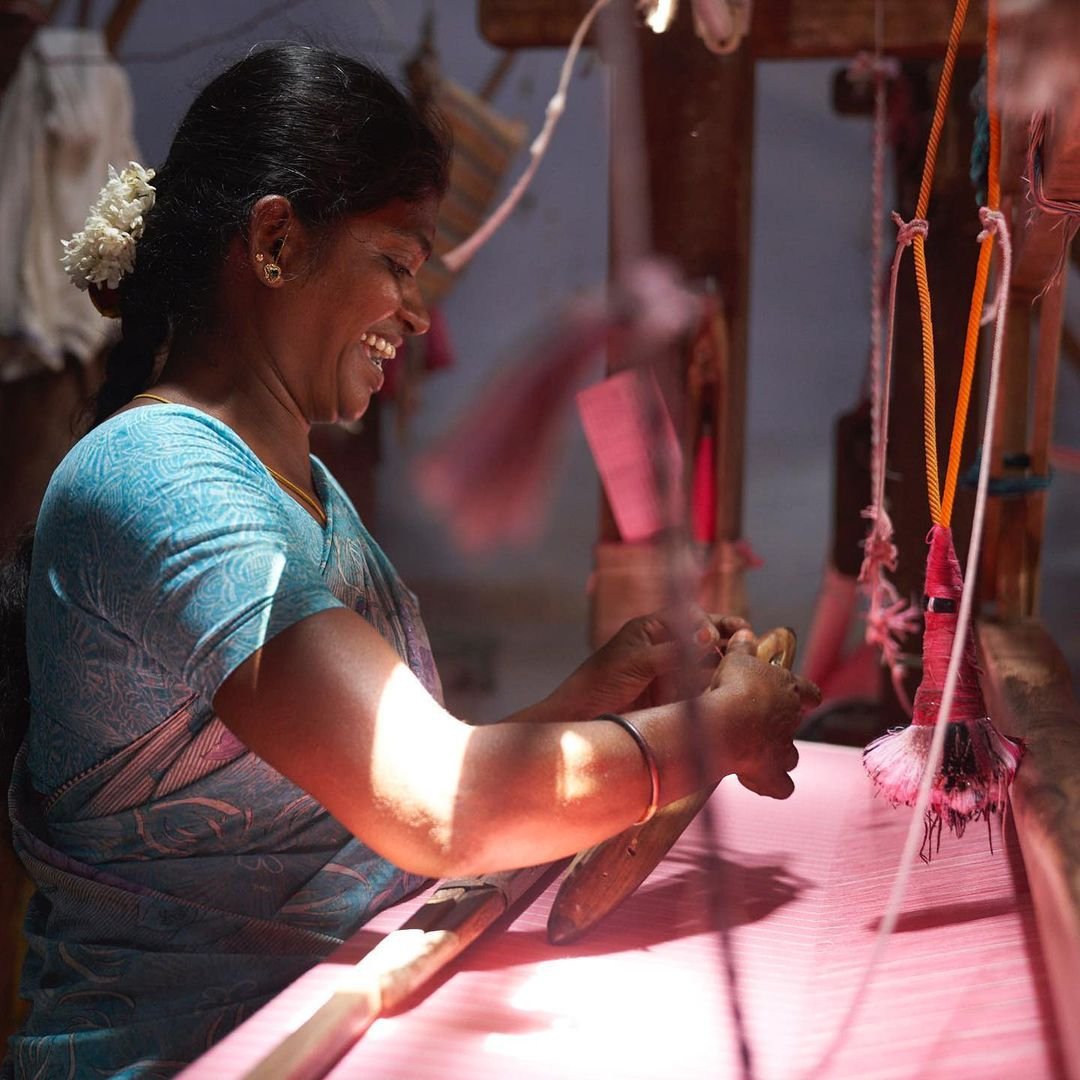Creating A Better Fashion Future: In Conversation with Nishanth Chopra, Oshadi Collective
Photographed by Ashish Chandra
Growing up in Erode, an industrial textile town, Nishanth Chopra witnessed firsthand the effects of the pollution caused by the industry’s mills and how it affected the locals and the environment. Being born into a family that had already spent decades in textile production and trading helped foster his curiosity and passion for clothing, and he made up his mind to continue and revamp the business after he completed his education.
Photographed by Ashish Chandra
Upon returning from university though, he saw his family business in a whole new light, spotting something inherently wrong with the fashion system and supply chain. “We decided to explore a different way which we thought was more considerate and humane, and a unison of several like-minded brands on the project in due course led to the start of Oshadi Collective,” he says. Oshadi, meaning essence of nature in Sanskrit, was founded by Nishanth as a slow-fashion womenswear label in 2016 but soon turned into something much bigger, creating a new path of sustainability and equity for other homegrown brands to follow.
Today, Oshadi Collective has cultivated a new fashion system - creating a seed-to-sew cycle where they are involved in every stage of textile production from farming to dyeing to hand-weaving - giving back more than they take. With a 50 acre regenerative cotton farm at the heart of their operations and a community of farmers, weavers, spinners, dyers and other artisans involved, Nishanth’s work with Oshadi is now shared with designers and brands from around the world.
Photographed by Ashish Chandra
When asked about the ethos that Oshadi was formed around, he explains, “We believe in sharing knowledge, bringing solutions to the forefront that we think can tackle pollution, treating people with respect and dignity; and working with a collective of like-minded brands and designers whose values align with ours.” Their beautiful fabrics that tell stories of the hands that made them and their supply chain, rooted in ancient wisdom and artisanry, have allowed them to collaborate with luxury and contemporary brands from around the world to revamp their existing methods of production.
Their seed-to-sew cycle built around regenerative farming, while innovative in today’s times, takes inspiration from ancient Indian farming and production techniques - a true example of how often the simplest solutions are the best ones.
Nishanth’s love for the process, its evolution and seeing their ideas come to life reflects in the way he passionately speaks about their seed-to-stitch cycle. “Seed-to-sew is a modern take on the ancient Indian textile economy where all processes from farming till final consumption took place within a small rural community,” Nishanth says and adds, “We now live in a world where the market has been globalised and shrunk in size, so I felt the 'seed-to-sales' part of the old economy was very limiting with respect to local sales and could not be replicated in this current period. So, we took the next best approach - 'seed-to-sew' - where all processes from initial regen farming till final weaving/knitting and sewing takes place within 100kms of our farmland.” Looking to areas closer to their farms for dyeing and stitching has helped Oshadi ensure a sustainable and fair approach to their garments, truly honouring their artisan heritage.
His visionary work with Oshadi and their fresh take on ancient Indian agricultural techniques made a true impact on No Borders, and Nishanth quickly became an integral part of our community. Talking about how he was introduced to us, he says, “We were looking at a lot of shops in India during our initial days to be able to showcase our collection and sell in India, and only felt driven to No Borders Shop as I felt it had a level of authenticity, freshness and a connection to the local unlike others. It was one of the only shops that was trying to support and amplify talented young designers to a more broader international market and it was a privilege to be showcased in India with some of the other designers I really admired.”
Our event - An Ode To Bangalore on 30th July - will be hosting a workshop with Nishanth Chopra, taking us through the age-old art of block-printing and sharing with us his stories of his work of respecting and regenerating the Earth. “Hasam Khatri - one of the incredibly talented and highly-skilled block printers we work with, will be taking everyone through creating Ajrakh block prints, its history and its process. It will be exciting to see people create their own prints on fabric and be able to take their work home.
You can attend this immersive workshop and share in Nishanth and artisan Hasam’s wealth of knowledge by booking your tickets here!







